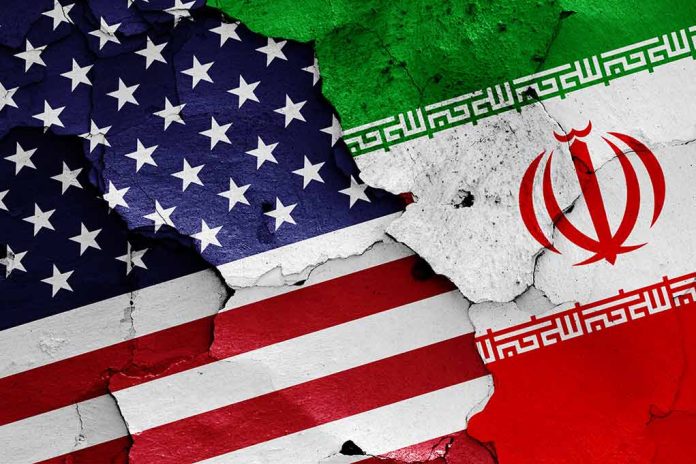
President Trump prioritized American lives over Israeli pressure, refusing a plan to assassinate Iran’s Ayatollah Khamenei in a strategic move that prevented what could have been a catastrophic regional war.
Key Takeaways
- President Trump vetoed an Israeli plan to assassinate Iranian Supreme Leader Ayatollah Ali Khamenei, according to two U.S. officials.
- Trump made clear that action against Iran’s leadership would only be considered if Iranians killed an American, emphasizing his America First policy.
- Despite rejecting the assassination plot, Trump issued stern warnings to Iran about potential U.S. retaliation if American targets were attacked.
- The incident has highlighted divisions among Trump supporters and GOP figures regarding U.S. involvement in foreign conflicts.
- Director of National Intelligence Tulsi Gabbard testified that Iran is not currently building a nuclear weapon, contradicting some Israeli justifications for military action.
Trump’s Strategic Restraint on Iran
In a demonstration of his America First foreign policy, President Donald Trump reportedly rejected an Israeli plan to assassinate Iran’s Supreme Leader Ayatollah Ali Khamenei. Two anonymous U.S. officials revealed that Israel had presented an opportunity to eliminate the Iranian leader, but Trump firmly opposed the operation. His decision appears to have been guided by a clear principle regarding when such extreme measures would be justified. “Have the Iranians killed an American yet? No. Until they do we’re not even talking about going after the political leadership,” stated a senior U.S. official.
The report has been corroborated by multiple news sources including Fox News, the Associated Press, and Axios reporter Barak Ravid. While Netanyahu’s spokesperson labeled reports of the assassination plan as “fake,” the Israeli Prime Minister stopped short of directly confirming or denying the incident in a Fox News interview. Instead, “emphasized Israel’s independence in making security decisions,” stated Netanyahu. “But I can tell you, I think that if we do what we need to do, we’ll do what we need to do. And I think the United States knows what is good for the United States.”
America First vs. Foreign Entanglements
The revelation about Trump’s decision has underscored the divide among his supporters regarding U.S. involvement in foreign conflicts. Kentucky Senator Rand Paul and others have voiced support for Trump’s avoidance of foreign entanglements under the America First policy. “So, I think it’s going to be very hard to come out of this and have a negotiated settlement. I see more war and more carnage. And it’s not the U.S.’s job to be involved in this war,” said Senator Rand Paul.
“They sent a missile through my bedroom window. I’ll tell you, they view President Trump as an enormous obstacle. They think that Israel is a very big obstacle, and they’re out to get us both.”
In contrast, other Republican figures like Senator Lindsey Graham have taken a more hawkish stance, supporting U.S. backing of Israel’s airstrikes against Iran and citing national security interests. This policy divide reflects broader tensions within the Republican Party about America’s role in international conflicts and the limits of U.S. military involvement. Despite these differences, Trump has maintained his diplomatic approach while also issuing clear warnings to Iran against targeting American interests.
Diplomatic Solutions vs. Military Action
President Trump has consistently called for peace between Iran and Israel, suggesting that a deal between the two nations could be possible in the near future. While maintaining his firm stance against Iranian aggression toward American interests, Trump has emphasized his preference for diplomatic solutions over military escalation. “If we are attacked in any way, shape or form by Iran, the full strength and might of the U.S. Armed Forces will come down on you at levels never seen before,” said President Trump, making clear that while he prefers peace, he stands ready to defend American interests decisively.
The debate over Iran’s nuclear capabilities continues to complicate the situation. Director of National Intelligence Tulsi Gabbard recently testified that Iran is not currently building a nuclear weapon, though she noted that Iran’s enriched uranium stockpile is at unprecedented levels for a non-nuclear state. This assessment was challenged by GOP Senator Tom Cotton, who claimed that Iran is actively working toward nuclear weapons capability. These conflicting assessments highlight the complexity of formulating effective policy toward Iran and underscore the importance of careful, strategic decision-making that Trump has demonstrated throughout his presidency.





